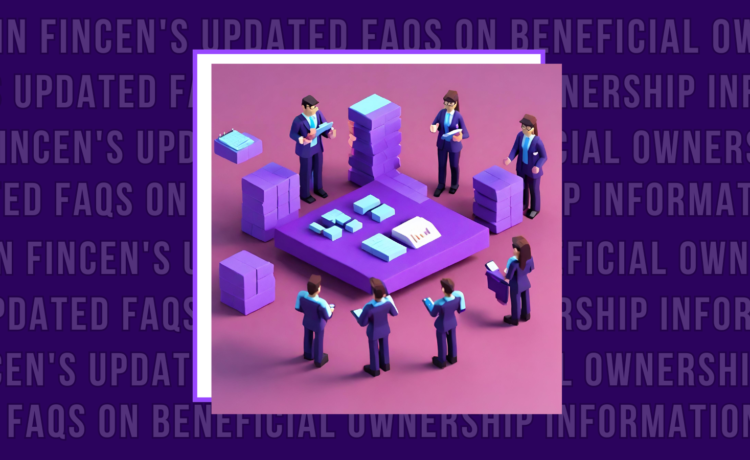In the evolving landscape of financial regulation, transparency and accountability have become paramount. The Beneficial Ownership Information Report (BOIR), mandated by the Financial Crimes Enforcement Network (FinCEN), stands at the forefront of these efforts. This article delves into the intricacies of the BOIR, its significance, and what businesses need to know to ensure compliance.
What is the BOIR?
The Beneficial Ownership Information Report (BOIR) is a regulatory requirement established by FinCEN, a bureau of the U.S. Department of the Treasury. The BOIR mandates that certain entities disclose detailed information about their beneficial owners—the individuals who ultimately own or control the company. This initiative aims to combat money laundering, terrorist financing, and other illicit financial activities by enhancing transparency in corporate structures.
Key Components of the BOIR
Identification of Beneficial Owners: Entities must provide comprehensive details about each beneficial owner, including full legal name, date of birth, residential address, and unique identification numbers (such as Social Security Number or passport number).
- Ownership Thresholds: Typically, a beneficial owner is defined as an individual who, directly or indirectly, exercises substantial control over the entity or owns or controls at least 25% of the ownership interests.
- Reporting Deadlines: Newly formed entities are required to submit their BOIR upon registration. Existing entities must comply within a specified period after the implementation of the reporting requirements.
- Continuous Updates: Entities must keep their beneficial ownership information current, reporting any changes within a designated timeframe to ensure ongoing compliance.
Why is the BOIR Important?
The BOIR plays a critical role in enhancing financial transparency and integrity. By requiring detailed disclosure of beneficial ownership, FinCEN aims to:
- Prevent Financial Crimes: Identifying the true owners of entities helps in detecting and preventing money laundering, tax evasion, and the financing of terrorism.
- Promote Corporate Accountability: Transparency in ownership structures discourages illicit activities and promotes ethical business practices.
- Enhance International Cooperation: Sharing beneficial ownership information facilitates collaboration with international bodies in the fight against global financial crimes.
Compliance Requirements for Businesses
To comply with the BOIR, businesses should undertake the following steps:
- Identify Beneficial Owners: Conduct a thorough analysis to determine who qualifies as a beneficial owner under FinCEN’s guidelines.
- Gather Accurate Information: Collect all required details for each beneficial owner, ensuring the information is accurate and up-to-date.
- Implement Internal Controls: Establish procedures to monitor and report changes in beneficial ownership promptly.
- Consult Legal Experts: Engage with legal professionals specializing in financial compliance to navigate the complexities of the BOIR and ensure all regulatory obligations are met.
- Leverage Technology: Utilize compliance software and databases to manage and streamline the reporting process, reducing the risk of errors and omissions.
Potential Challenges and Solutions
- Complex Ownership Structures: Multinational corporations or entities with layered ownership can complicate the identification of beneficial owners. Solution: Implement comprehensive due diligence processes and maintain detailed records of all ownership tiers.
- Data Privacy Concerns: Disclosing personal information of beneficial owners raises privacy issues. Solution: Ensure that all data is handled in accordance with privacy laws and regulations, employing secure methods for data storage and transmission.
- Changing Regulations: Financial regulations are subject to updates and changes. Solution: Stay informed about regulatory developments through continuous education and by subscribing to updates from FinCEN and other relevant bodies.
The Future of BOIR and Financial Transparency
As global financial systems become increasingly interconnected, the importance of initiatives like the BOIR cannot be overstated. FinCEN’s emphasis on beneficial ownership transparency is likely to inspire similar regulations worldwide, fostering a more secure and accountable international financial environment.
Businesses must proactively adapt to these requirements, not only to ensure compliance but also to contribute to the broader fight against financial crime. By embracing transparency and robust reporting practices, companies can build trust, enhance their reputations, and operate with greater confidence in a regulated marketplace.
The Beneficial Ownership Information Report is a pivotal element in the quest for financial transparency and security. FinCEN’s BOIR mandates compel businesses to reveal the true owners behind corporate entities, thereby deterring illicit activities and promoting ethical business conduct. As regulatory landscapes continue to evolve, staying informed and compliant with BOIR requirements will be essential for businesses aiming to thrive in a transparent and accountable financial ecosystem.






